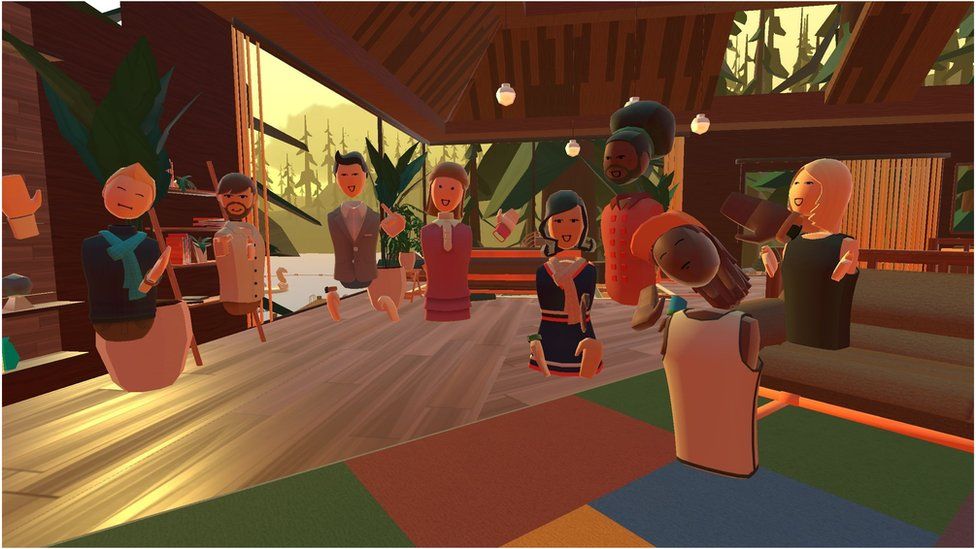When Jemma Bere's family was in crisis, she made a split-second decision that changed the course of her life. At an age when most people are preoccupied with relationships and careers, Jemma's sole focus became her two half-siblings.
There was nothing conventional about Jemma's childhood.
"I remember spending a lot of time in sleeping bags looking up at the stars," she says.
Packed into their blue and white Land Rover, the family had driven around most of Europe, and travelled from Bali, through Malaysia, to Thailand.
"My mum was definitely a free spirit," Jemma says. "She thought it was a fantastic experience for me to be schooled in the process of travelling and meeting new people."
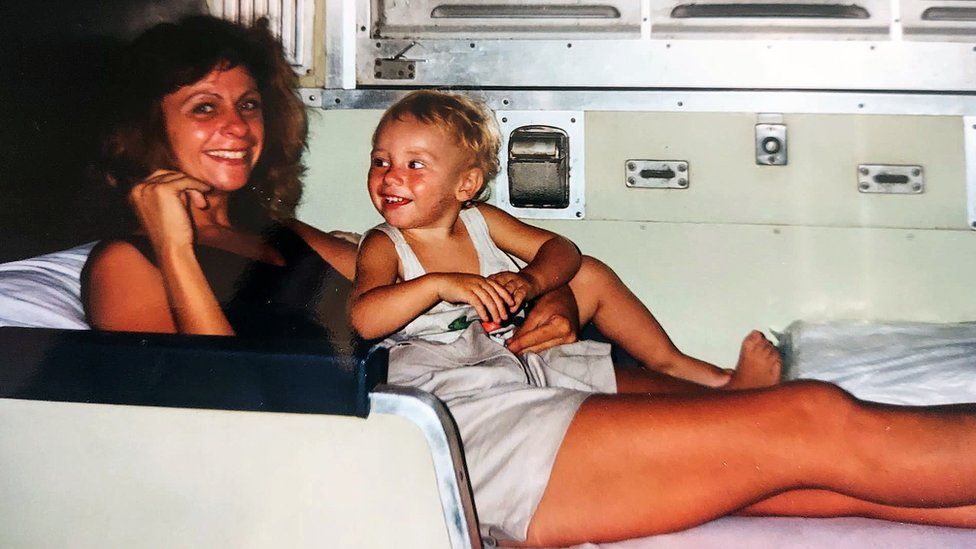
By the age of 10 Jemma could speak several languages. A year later the family was living on a ramshackle sailing boat on Turkey's Mediterranean coast. But when her mother's relationship with her partner broke down, Jemma and four-year-old Calvin returned with her to Powys in Wales.
"I think my mum liked the idea of having an idyllic cottage with lots of children and dogs, and roses over the door," Jemma says. "And she and my nan were very close, so we came back to Brecon."
By the time Jemma was doing her GCSEs Jemma's mother, Jane, had a new partner - a bricklayer everyone knew as Shakey - with whom she went on to have a boy and a girl, Alex and Billie, 14 and 15 years younger than Jemma.
"Shakey was very charismatic, and I think they had a genuine love for each other," Jemma says, "but he did drink quite a lot."
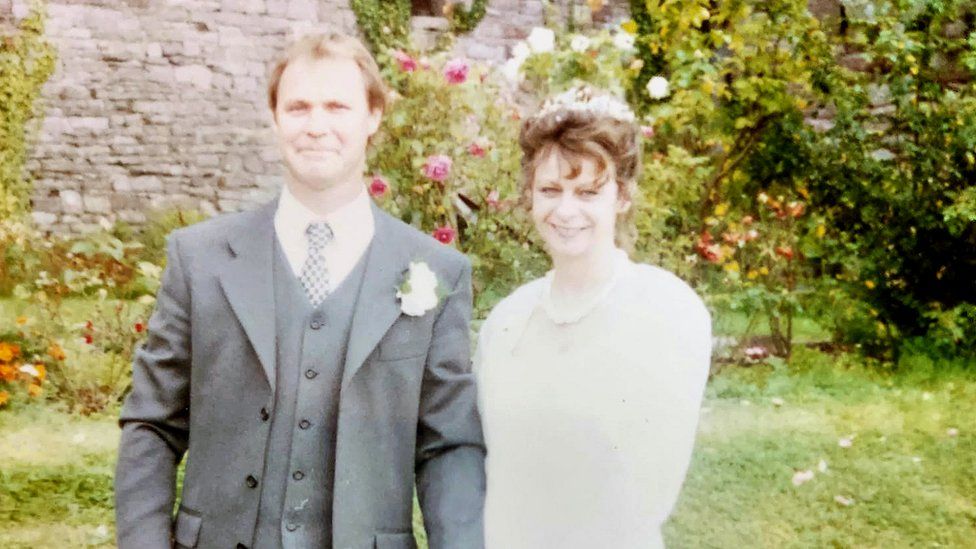
Shakey liked a pint after work - sometimes many pints. It would get late and Jane would worry. She'd try phoning, but either there was no signal or he wouldn't answer, so she'd get in the car and go looking for him, leaving Jemma in charge of the three children.
"And I wouldn't know when she was coming back," Jemma says.
Once Jane also started drinking heavily everything began to slide.
"When I came home from school, things that would have normally been done wouldn't have been - cleaning the kitchen after breakfast, those sorts of things had been left all day," Jemma says.
Then, while she was studying for her A-levels in 2001, Jane and Shakey decided to move to Andalucia in Spain. They'd been having some financial difficulties as a result of Shakey's drinking, and there was plenty of work there for bricklayers.
"I think it represented a new start," Jemma says, "and from what I could gather the first few months were really positive."
Jemma stayed in Wales with her nan, thinking she might move to Spain after her exams, while Calvin, her younger brother, went to live with his father.
Only a few months later, there was devastating news - Jane had been in a road accident.
Jemma tried to phone Shakey to get more details, but there was no answer. Desperate for information, she put her A-level Spanish to good use and began calling all the hospitals in southern Spain to find her mother.
When she eventually managed to speak to Shakey he was in a state. They'd been crossing a quiet road on foot when Jane had been hit by a speeding truck, he said. In a matter of hours she had died, aged only 40.
"I felt utterly, utterly lost," Jemma says. "Like I was away at sea without any anchor or compass or anything."
- Jemma Bere spoke to Jane Garvey for interviews with people about a moment that has reshaped their life. The programme was produced by Andrea Kennedy.
After Jane's funeral in Brecon, Shakey returned to Spain with Alex and Billie.
"That surprised quite a lot of people," Jemma says, "but I think part of him was doing it because my mum had been happy there."
Jemma still contemplated joining them in Spain, but she had done well in her exams so now had other options too.
"And I decided to go to university - partly because I think that's what my mum would have wanted," she says.
Every holiday Jemma would find the cheapest flight to travel to Spain, giving her uni friends the impression that she led quite an exotic lifestyle. "It wasn't quite like that," she says.
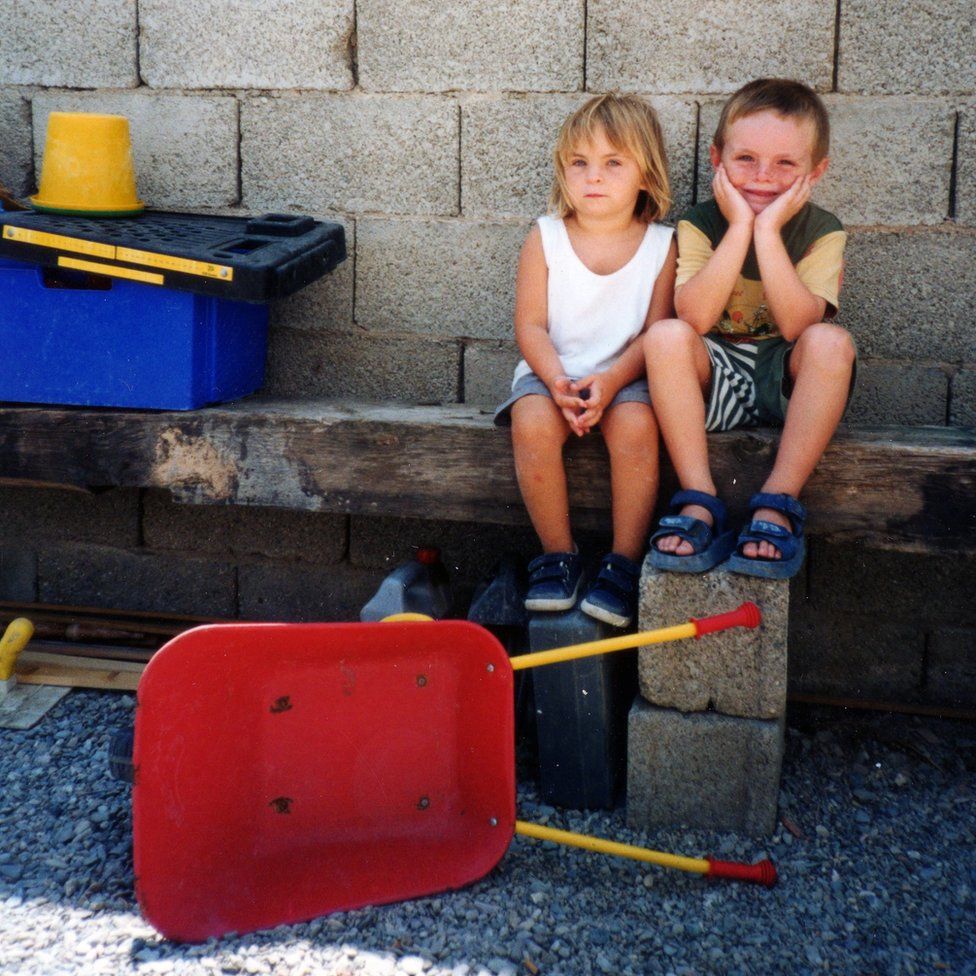
Shakey and the children lived in a small, close-knit community; everyone knew him because he was out drinking all the time, running up bar tabs all over town. When Jemma visited it was obvious that he wasn't coping well. He'd do a building job and spend all his earnings in the pub, or disappear for days at a time after nipping out for cigarettes. Despite becoming increasingly dependent on alcohol, he wasn't willing to seek help.
"We had frequent arguments about it when I went out there - he wouldn't accept that he had a problem at all, he was completely in denial," Jemma says.
"I think he genuinely thought he was doing the best that he could in really difficult circumstances. But he spent more time in the pub than he did with the children."
During term time, while Jemma was at university, Marisa, a nanny Shakey had hired to help him with the children, held everything together.
"She arranged for them to go to a Spanish school," Jemma says, "and she was absolutely wonderful, she adored them."
But Marisa received news that her mother was unwell and had to return to Argentina straight away.
A few weeks later Jemma got a phone call saying that Alex and Billie had been taken into care.
"I was heartbroken," she says, "but not very surprised.
Jemma travelled to Spain immediately. She was told that Shakey would need to be sober for three months, hold down a job for at least as long, and get himself a house if he wanted to stand any chance of getting the children back.
Since the children had been taken away he'd fallen behind with his rent and lost his home. Jemma helped him find a job and a place to live. But she couldn't get him to stay off the drink.
"I think he did know he was an alcoholic, but I never heard him admit it out loud," Jemma says. "He couldn't stop."
Three months later, the authorities in Spain told Jemma that unless somebody in the family could take care of Alex and Billie they were going to be put up for adoption. There was no guarantee that they would be kept together, or that they would be placed with a family that spoke English. It may even not be possible for Jemma to continue to see them.
"And I heard myself saying, 'Well, I'll look after them then - send me the forms.'"
Jemma put the phone down, and soon started to question what she'd done.
"Not whether it was right, but whether I was the right person to do it," she says. "I was worried about taking them away from a language and a culture that they knew… People that adopt normally have a lot of money, they might have nice homes - I had absolutely nothing."
To begin with, Jemma's family couldn't believe what she'd signed up for, barely six months after graduating.
"They were so angry with Shakey, they didn't see why I had to 'throw my life away' in order to rectify a problem he had created," she says. "They used that phrase - I never saw it as that."
But Jemma was only 23, and everyone worried that she didn't know what she was getting herself into.
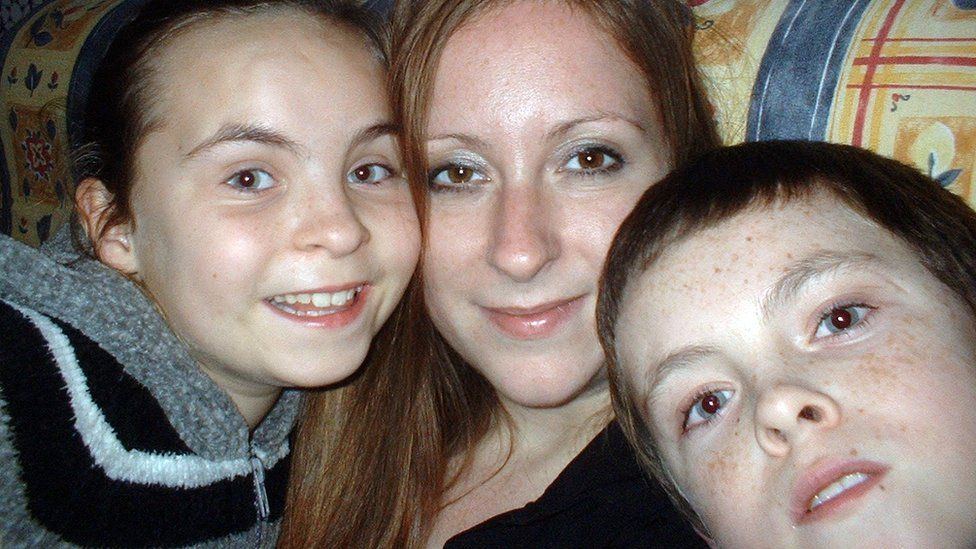
The formal adoption process was lengthy and complex. Throughout the 18 months that it took for a decision to be made, Jemma was repeatedly warned that the odds of her getting custody of the children were slim.
"I kept being told I was not going to get them because I didn't have a house, or I didn't have the right set-up, or I didn't have this, and I didn't have that," she says.
Jemma moved back to Brecon, because that felt like the right place to be if she did get custody, while in Spain Alex and Billie were moved from a care home into an extremely strict, traditional Catholic orphanage. To this day the sight of nuns still makes them shudder, Jemma says.
She couldn't tell them anything about what she was trying to do.
"I didn't want to get their hopes up. And by that time, they'd stopped asking whether they were going home or not."
Finally, one sunny July afternoon, the adoption lawyer rang to tell Jemma she could go to Spain to collect Alex and Billie as soon as she wanted.
"I can't really describe the feeling - whether it was relief, or excitement, or fear, or probably all of the above," she says.
Within a matter of days, Jemma had organised a new house and furnished it with the help of the credit card her mum had told her only to use in emergencies. The flights for her and the children were paid for the same way.
Alex and Billie still had no inkling of what was about to happen.
"They were absolutely delighted," Jemma says. "It was amazing, but I think they also didn't really believe it - they'd been let down so many times."
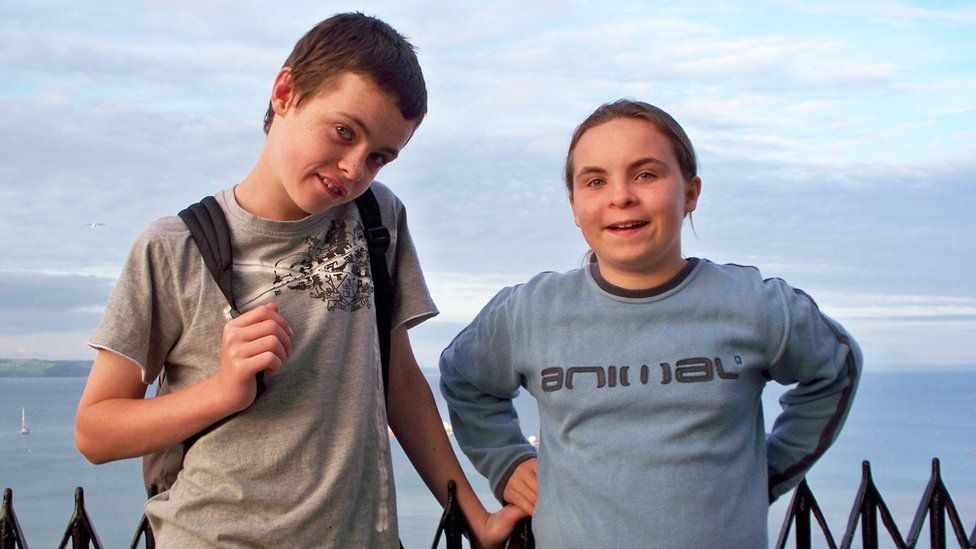
Now 24, Jemma was suddenly responsible for two children, aged eight and nine.
Financially, things were tough. Jemma couldn't work because she couldn't afford childcare. And because she wasn't yet Alex and Billie's legal guardian she wasn't entitled to most benefits. For the first six months, the three of them had to live on £90 a week.
"They were happy times," Jemma recalls, "but they were extremely poor times as well."
To begin with, Alex and Billie stuck to each other like glue.
"One of the really positive signs was when they started arguing," Jemma says. "They'd only had each other for such a long time. I thought that was a really good sign that they were growing independently."
They had lost most of their English, so a course Jemma had taken at university on teaching English as a foreign language suddenly came in handy. She stuck Post-It notes to everything in their home, in both English and Spanish, to help the children remember words they had forgotten.
"And after a couple of weeks they just started saying, 'Jemma, we don't speak Spanish, we speak English now.'"
Parenting was tremendously hard work.
"There are so many things that need to be done. You can't stop and think about it," she says.
And the children could be a handful.
"There have been times when I've been head-in-hand thinking, 'I wish my mum was here, because I remember doing this to her and I am so, so sorry.'"
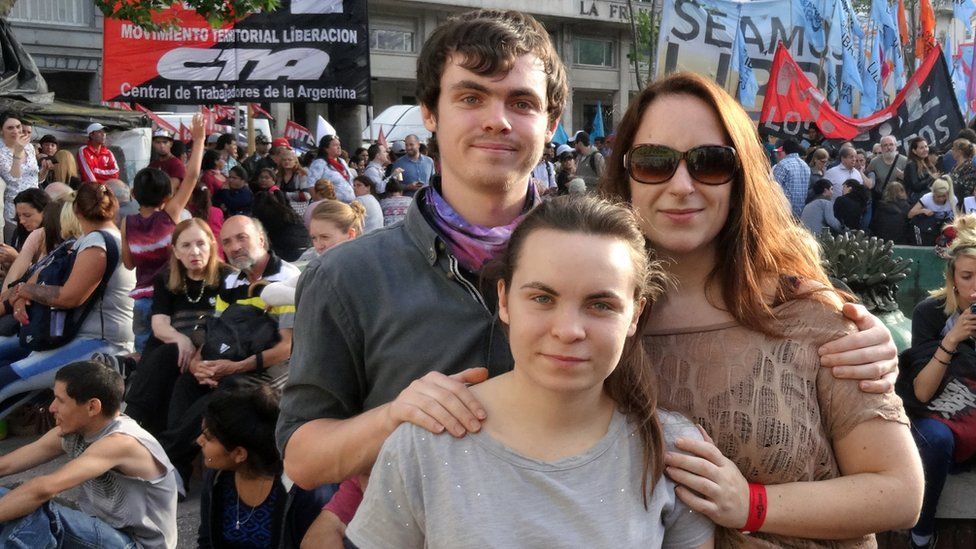
It took a year for Jemma to be awarded a special guardianship order, making her the children's legal parent. That marked a turning point for Alex and Billie, who'd grown so accustomed to being moved around that they hadn't really believed they'd be able to stay with Jemma for good.
It took at least as long for Jemma to become comfortable going on a night out, and having a relationship wasn't something she even considered.
"Dating wasn't on my radar for a long time, not until the children were about 16," she says.
When she started working full-time for the Brecon Beacons National Park Authority, she struggled with what she describes as "proper mum guilt".
"I was so conscious of how hard I'd fought for them to be here," she says. "If I was spending time working or if I was too tired to deal with whatever it was that they wanted, that really hit me."
At some point Shakey returned to the UK from Spain. He was living in a homeless shelter in Swansea when Jemma visited him in 2017.
"He'd lost all his sparkle and mischievousness," she says. "I think he had a lot of regrets. But what I say to the children is that their dad wasn't a bad man, he wasn't malicious, he was extremely ill."
Shakey drank himself to death in 2018.
Now that Alex and Billie are about the same age she was when she set out to adopt them, Jemma can understand why some people felt she was making a mistake.
"If they turned around and said to me that they were adopting two children I'd hit the roof!" she laughs.
But she's immensely proud of how they have turned out.
"They've gone through so much. They could have gone in a completely different direction, but they're just such lovely, well-rounded, human beings."
Both have inherited their mother's passion for seeing the world. After A-levels Alex went travelling around New Zealand for a year and later worked as a snowboarding instructor in Canada, while Billie studied travel and tourism at college.
And as time has gone on, Jemma has begun to feel less like a mum and more like a sibling.
"I'm like a big sister but with extra superpowers, I think is probably the best way to describe it," she says.
Another change is that these days strangers aren't so puzzled when they meet them.
"When they were younger - or when I was younger - people often asked me how old I was and how old the children were, and I could see them doing the maths in their head and raising an eyebrow," Jemma says. "Sometimes I told them, but mostly I let them think what they wanted to."
At 38, Jemma now has the house to herself and a lot less laundry to do. She has been in a relationship for seven years, but says she has never really wanted to have her own children. Bringing up her siblings, though, is something she has absolutely no regrets about.
"It's the best decision that I've ever made."











